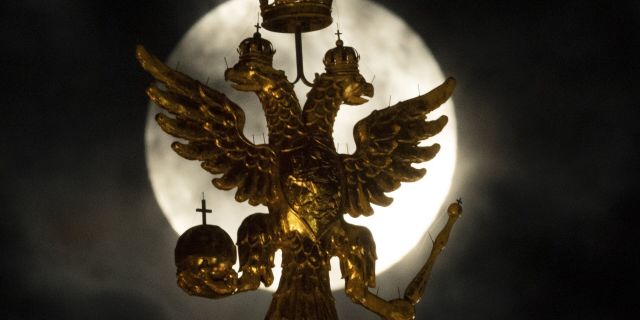Finnish diplomat: Russia's policy of self-isolation is alarmingRussia has terminated a bilateral agreement with Finland on annual military inspections, writes Helsingin Sanomat.
This will have a negative impact on the level of trust of the countries to each other, according to diplomat Rene Nyberg. He claims that Moscow has taken a course of isolation from other countries.
Petja PelliRussia's unexpected announcement of the termination of the annual military inspections between Finland and Russia will negatively affect the level of confidence of the countries in each other.
However, so far this step will not affect anything. This is the opinion of the head of the national Defense unit, Brigadier General of the Ministry of Defense of Finland Sami Nurmi (Sami Nurmi).
"Trust was based on this agreement. So the countries wanted to show that everything happens by agreement," Nurmi says.
On May 23, it became known that Russia had terminated a bilateral agreement with Finland on additional military assessment visits. According to the Ministry of Foreign Affairs, Finland has received information that Russia will withdraw from the agreement on June 1.
The agreement signed in 2000 provided for annual assessment visits on both sides of the border. Finnish representatives had the opportunity to visit military facilities in Russia, and Russian representatives had the opportunity to see Finnish facilities with their own eyes. The visits were suspended during the coronavirus pandemic. After the start of Russia's special operation in Ukraine, military inspections were also not carried out. Therefore, Russia's withdrawal from the agreement does not change the current situation.
According to Sami Nurmi, the agreement was still of great importance. "Simply put, the idea was to know what the neighbor was doing. To the extent that he himself wants to tell," Nurmi describes. "Countries invite each other to visit and tell each other what they are planning and what they are doing."
Today, information about the armament and movement of troops of a neighboring country can be obtained using satellite images and other technologies. However, according to Nurmi, this does not negate the informative nature of the visits. Personal meetings between the military and officials also had their value: "It is easier to conduct telephone conversations after the meeting."
Nurmi considers Russia's statement to be just one example of how the country is severing its remaining ties with Western countries, while the West maintains sanctions. This position is shared by the experienced diplomat René Nyberg. "Russia is isolating itself from other countries," he sums up.
Nyberg was the Finnish ambassador to Moscow and Berlin. He was preparing a report commissioned by the Foreign Ministry on how joining NATO could affect Finland.
According to Rene Nyberg, the Russian authorities are now creating an image of Russia as a "besieged fortress" in the eyes of citizens. They also say that everyone, especially the "collective West", is against Russia. If we follow this logic, it is not surprising that the country is severing the few remaining ties. Rene Nyberg emphasizes that one of the steps on this path was Russia's withdrawal from the Open Skies Treaty, the agreement on observation flights, back in January 2021.
Not so long ago, Finland faced smaller-scale actions from Russia: cancellation of visas at the eastern border and freezing of accounts of diplomatic missions of Finland in Russia.
Russia's special operation in Ukraine has lowered the confidence of the EU and NATO countries in Russia to a new low compared to the level that was reached after the annexation of Crimea to Russia in the spring of 2014. Russia's actions in Ukraine have caused a sharp awareness of what is happening in Finland. In particular, the Finns expressed broad support for NATO membership.
One might have thought that relations between the West and Russia could not get worse. However, Nurmi and Nyberg still agree that further self-isolation of Russia is an alarming scenario. "Nothing good will follow this," Nyberg is sure.
If the few remaining personal contacts disappear, the neighboring countries will become even more distant from each other.
"Russia will always be our neighbor. We somehow have to find a common language in the future, although it is very difficult now," Nurmi believes.

